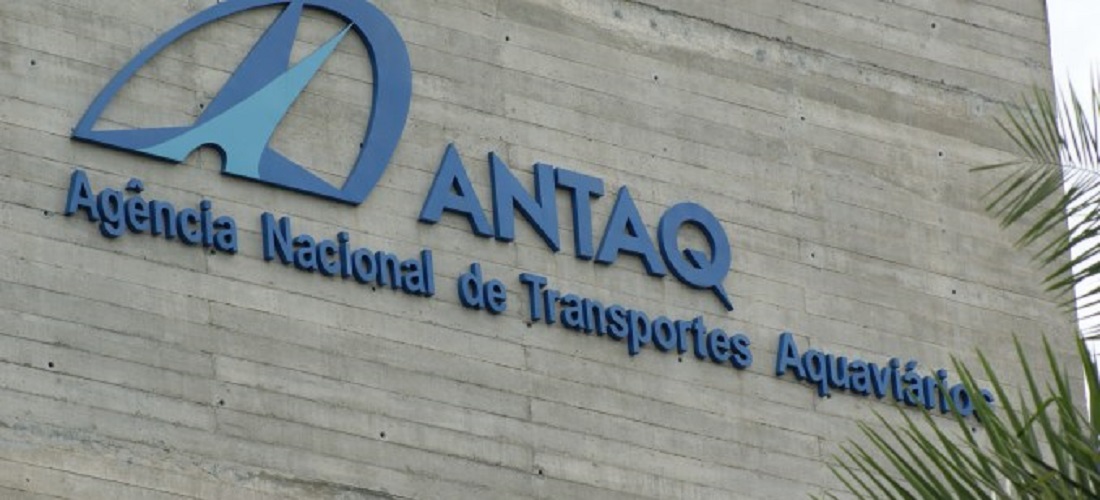
Antaq determines tariff discount at public ports
Jan, 02, 2024 Posted by Gabriel MalheirosWeek 202401
Public ports whose access channels’ performances fall short of expectations will be required to grant a tariff discount on fees for large ships. The National Waterway Transportation Agency (Antaq) imposed this directive on port authorities on December 14. The measure, expected to be published in the Official Gazette of the Union (DOU) in the coming days, will only be implemented when the tariff tables are amended.
Eduardo Nery, the director-general of Antaq, explained that for the discount to be implemented, port authorities need to modify their tariff tables to include the rule mentioned in item 5.1 of the decision. “Antaq will mobilize and coordinate with port authorities to implement the discounts as quickly as possible.”
The regulatory body has set a minimum period of 60 days in advance for the effectiveness of new tariffs and increased participation of stakeholders in tariff reviews.
Nery further clarified that public port managers do not need to be individually notified of the decision. However, “Antaq, through its superintendencies, will work with port administrations to comply with the measure.”
The director-general stated that the measure aims to ensure that port administrations provide the appropriate level of service. “With this measure, we want to encourage port authorities to offer the level of service they committed to providing when the tariff tables were approved.”
Nery added that the prices users pay impose a counterpart, precisely the waterway or land access infrastructure the port authority must provide.
Fee discounts were requested by associations representing companies in the port sector, but their names were not disclosed. “The names of the entities involved in the process are restricted due to their competitive nature,” said Nery.
Contacted for comment, Anderson Pomini, president of the Port Authority of Santos (APS), approved the initiative “because it stimulates the necessary investments in Brazilian ports. In the Port of Santos, we did not have any refusals of large ships in 2023 due to problems in the navigation channel. We recorded only one case of a ship that had entered the port and did not dock due to damage to the fender where it would have docked.”
“Appropriate, yet belated measure”
Ivam Jardim, a port consultant at Agência Porto Consultoria, said the measure is appropriate. He explained that with Antaq Resolution No. 61/2021, the billing model for Table I, which deals with the port’s access channel, became variable, charged by the vessel’s gross tonnage. Previously, at the Port of Santos, charges were based on the tonnage loaded onto the ship.
“However, in some maritime freight cases, due to a lack of infrastructure in a particular port, it is necessary for the importer or exporter not to use the vessel’s total load capacity, for example, to leave it light so that it does not exceed the operational draft of a specific port. In these cases, there is a loss of ‘dead freight,’ and even more is paid because the ship is large.”
However, Jardim highlighted that Antaq should adopt the same measure for Table II, Berthing Installations, and Table III, Operational or Land Infrastructure Installations. “Here at the Port of Santos, when the current port tariff was established, the cost necessary for existing and contracted maintenance was projected for Table III. An additional remuneration of BRL 936.3 million was added, a value projected for investments in the expansion and modernization of the common infrastructure of the organized port, which should be started within 36 months and completed within 84 months after the start of validity, which occurred on April 1, 2022.”
Port consultant and director of V2PA Engineering and Consulting, Marcos Vendramini, assessed that the measure is “belated to compensate lessees who heavily invest in improving productivity and increasing the capacity of their terminals and end up penalized by the inefficiency and lack of interest of the public authorities.”
The consultant added that the agency should also consider “years of deficient maintenance of the berths that, like an access channel with insufficient depth, perhaps only do not restrict operations due to the lack of knowledge of the real condition of support for operational loads.”
Vendramini also suggested a possible alternative solution, “since there is talk of granting maintenance of the access channel, it would also be the concession of the berths to the lessees of the neighboring terminals. Thus, in exchange for eliminating the payment of Table II, the terminals that wished to would be responsible for the berths they operate, performing maintenance and updating of the berth assets efficiently.”
Source: A Tribuna
Click here to read the original text: https://www.atribuna.com.br/noticias/portomar/antaq-determina-desconto-tarifario-em-portos-publicos
-
Economy
Oct, 01, 2024
0
Climate events to slash over 12% of Latin America’s GDP by 2050
-
Meat
May, 30, 2022
0
Brazilian halal beef has gained notoriety in Muslim countries
-
Shipping
Mar, 21, 2019
0
SAMWAF service will no longer call at Libra Terminal, Santos
-
Ports and Terminals
Aug, 14, 2024
0
366-meter vessel docks at Brazil’s Itaguai Port for the first time

